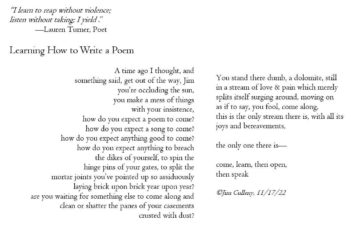by Tim Sommers

I’m not really interested in magic. But I am interested in crime. So, recently while reading a discussion of close-in magic by neuroscientists I perked up when they got to the question of how criminals, and others of questionable character (like magicians), steal wristwatches right off their victims’ wrist without being detected. (Still relevant? Wrist watch wearing, admittedly, is way down from its peak in the 1950s, but a third of adult males still wear one every day – and then there’s smartwatches, step counters, etc.)
Apparently, there’s a skill and a trick involved in stealing a watch. The skill is to learn to undo the clasp using just your middle and pointer fingers, while simultaneously shaking hands with someone. Sure, that’s quite a skill to master, but I was more curious about how you then yank a watch off someone’s wrist without them noticing – particularly a watch with a “deployant clasp” that doesn’t open all the way. (See image above.)
Here’s what you do. You just clap the person on the shoulder at the same moment you yank off the watch. Apparently, this works. It’s all about distraction. Magicians have a fancy word for distraction. They call it “misdirection.” Personally, I find this irritating. I’ll stick with distraction.
Here’s another example of distraction from a magician. Before the start of a magic show I was dragged to, the audience was encouraged to come on stage and examine this large container to make sure it was real, solid, and had no trap door or hidden egress. Right before the show started the container was turned around by assistants, then closed. When the show opened, the container was turned back around, opened, and the magician stepped out to thunderous applause.
The crazy part is how the trick works. Having the audience check it out ahead of time was just a distraction. When they turned the container around, before they closed the door, the magician strolled casually out of the wings and climbed inside in full-view of the audience. I saw it clearly because I knew it was going to happen (because I had read a book the magician had written). But shouldn’t everyone have seen it? (Don’t even get me started on the “Invisible Gorilla.”)
Which brings me to my old roommate Nick. Read more »


 Every generation, when it reaches a certain age, makes two proclamations: Saturday Night Live used to be funnier, and “kids these days” are lazy and stupid.
Every generation, when it reaches a certain age, makes two proclamations: Saturday Night Live used to be funnier, and “kids these days” are lazy and stupid.

 I think of Pearl S. Buck and end up thinking of William F. Buckley. I think of
I think of Pearl S. Buck and end up thinking of William F. Buckley. I think of  In late March the United Nations adopted a landmark
In late March the United Nations adopted a landmark 
 The term “gastronomy” has no agreed-upon, definitive meaning. Its common meaning, captured in dictionary definitions, is that gastronomy is the art and science of good eating. But the term is often expanded to include food history, nutrition, and the ecological, political, and social ramifications of food production and consumption. For my purposes, I want to focus on the conventional meaning of gastronomy for which that dictionary definition will suffice.
The term “gastronomy” has no agreed-upon, definitive meaning. Its common meaning, captured in dictionary definitions, is that gastronomy is the art and science of good eating. But the term is often expanded to include food history, nutrition, and the ecological, political, and social ramifications of food production and consumption. For my purposes, I want to focus on the conventional meaning of gastronomy for which that dictionary definition will suffice.
 In all her work, Biss scrutinizes the nature of our connection in American life. In one of her early essays, “Time and Distance Overcome,” she looks at how telephone poles, instruments of communication, became gallows in public lynchings across the country in the early twentieth century. Vaccines—our greatest collective defense against viral disease—become a symbol of violation and trespass. Money, our shared concrete metaphor of value, becomes a tool of exclusion. Each subject Biss examines exposes the contested ground on which we make and remake our American identities.
In all her work, Biss scrutinizes the nature of our connection in American life. In one of her early essays, “Time and Distance Overcome,” she looks at how telephone poles, instruments of communication, became gallows in public lynchings across the country in the early twentieth century. Vaccines—our greatest collective defense against viral disease—become a symbol of violation and trespass. Money, our shared concrete metaphor of value, becomes a tool of exclusion. Each subject Biss examines exposes the contested ground on which we make and remake our American identities. Forty years ago, Frank Wilczek was mulling over a bizarre type of particle that could live only in a flat universe. Had he put pen to paper and done the calculations, Wilczek would have found that these then-theoretical particles held an otherworldly memory of their past, one woven too thoroughly into the fabric of reality for any one disturbance to erase it.
Forty years ago, Frank Wilczek was mulling over a bizarre type of particle that could live only in a flat universe. Had he put pen to paper and done the calculations, Wilczek would have found that these then-theoretical particles held an otherworldly memory of their past, one woven too thoroughly into the fabric of reality for any one disturbance to erase it. Bruno Schulz is an author who never tires of being discovered. A writer and artist whose known corpus includes two slim collections of stories, a bundle of letters, and a handful of visual works, mostly drawings. Schulz was born in 1892 in Drohobycz, a small Galician town that was then under Austro-Hungarian rule. He died in that same town in 1942, shot in the head by a Nazi officer. His life and work would likely have been unknown but for the efforts of a handful of people for whom his work meant the world.
Bruno Schulz is an author who never tires of being discovered. A writer and artist whose known corpus includes two slim collections of stories, a bundle of letters, and a handful of visual works, mostly drawings. Schulz was born in 1892 in Drohobycz, a small Galician town that was then under Austro-Hungarian rule. He died in that same town in 1942, shot in the head by a Nazi officer. His life and work would likely have been unknown but for the efforts of a handful of people for whom his work meant the world. The race to roll out
The race to roll out  A friend of mine used to joke that women writers discovered friendship in 2015, when the last volume of Elena Ferrante’s Neapolitan Quartet came out. I laughed, but I knew what he meant. It is easy to think of men who navigated the literary world together: Jonson and Shakespeare, Wordsworth and Coleridge, Johnson and Boswell, Shelley and Byron, Marx and Engels, Sartre and Camus, Bellow and Roth, Hughes and Heaney, Amis and Barnes. In Weimar for a day in summer 2014, bitter laughter rose in me when I emerged into Theaterplatz to find a monument to literary bro-dom: Goethe and Schiller in bronze, each with a hand on a shared crown of laurels. With stout folds in Goethe’s breeches and pupils missing from Schiller’s eyes, the unlovely statue had been cast in 1857, twenty-five years after Goethe died, and had stood for more than a century facing the stage where Goethe had directed many of Schiller’s plays. In the early twentieth century, copies of the monument were made for San Francisco, Cleveland, Milwaukee and Syracuse and erected in parks in those cities. I laughed some more when I found that out. Is there such a thing as jealous laughter?
A friend of mine used to joke that women writers discovered friendship in 2015, when the last volume of Elena Ferrante’s Neapolitan Quartet came out. I laughed, but I knew what he meant. It is easy to think of men who navigated the literary world together: Jonson and Shakespeare, Wordsworth and Coleridge, Johnson and Boswell, Shelley and Byron, Marx and Engels, Sartre and Camus, Bellow and Roth, Hughes and Heaney, Amis and Barnes. In Weimar for a day in summer 2014, bitter laughter rose in me when I emerged into Theaterplatz to find a monument to literary bro-dom: Goethe and Schiller in bronze, each with a hand on a shared crown of laurels. With stout folds in Goethe’s breeches and pupils missing from Schiller’s eyes, the unlovely statue had been cast in 1857, twenty-five years after Goethe died, and had stood for more than a century facing the stage where Goethe had directed many of Schiller’s plays. In the early twentieth century, copies of the monument were made for San Francisco, Cleveland, Milwaukee and Syracuse and erected in parks in those cities. I laughed some more when I found that out. Is there such a thing as jealous laughter? If not for the photographs I might have a hard time believing they ever existed. The pensive infant with the swipe of dark bangs and the black button eyes of a Raggedy Andy doll. The placid baby with the yellow ringlets and the high piping voice. The sturdy toddler with the lower lip that curled into an apostrophe above her chin.
If not for the photographs I might have a hard time believing they ever existed. The pensive infant with the swipe of dark bangs and the black button eyes of a Raggedy Andy doll. The placid baby with the yellow ringlets and the high piping voice. The sturdy toddler with the lower lip that curled into an apostrophe above her chin.